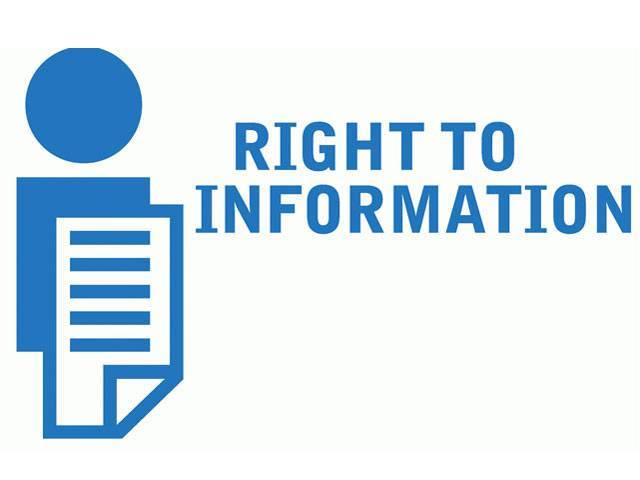
The K-P RTI Act was passed in November 2013, and the provincial government was to devise rules in consultation with the commission under Section 32 for carrying out its work under the Act, but the process stalled.
Officials said that because the commission lacked procedural rules and guidelines dictating employees’ service and leave, its employees were getting salaries without other benefits.
The commission’s chief information commissioner Azmat Hanif said that lack of rules had no effect on how the commission dealt with complaints and individual requests for information.

However, officials concerned said that the commission lacked a mechanism to collect fines because the procedure remained undefined. “The recovery mechanism has been elaborated in the proposed rules and amendments but they are yet to take a concrete shape,” said an official on condition of anonymity.
“The commission is still unable to recover any fines,” said a government official close to the commission, adding: “Unless fines are recovered, officials cannot be deterred from willfully withholding information.”
Azmat Hanif, however, insisted that in case of government officials, fines should be deducted from their salary, and in case of private entities, it should be recovered as land revenue arrears.
A mechanism for recovering fines was explained in amendments proposed by the commission in February last year, but they remained in limbo because of the differences between the commission and the law department. Under the proposed amendments, fines were to be recovered as government dues under the Government Dues Recovery Ordinance of 1962.
Insiders in the K-P law department pointed out that the department had sent the proposed amendments back to the Commission, asking for a re-draft, but the commission was yet to resend the re-drafted amendments.
“We objected over the inclusion of the high court in the ambit of the RTI law,” said a law department official, adding that the high court was a constitutional forum. “It (the high court) cannot be asked to provide information regarding pending cases … The commission had agreed”.
The official said that objections were also raised on provisions under which heads of public departments – secretary or director – were to be fined if the information was not provided even after the public information officer (PIO) was fined. There was also objection over the provision that the PIO can provide information without the approval of departmental heads.
Terming the commission’s pace lethargic, he said: “The law was passed three years ago and by now, the commission should have elaborated on the rules. It should also have explained the procedure for lodging a complaint in the commission.”
Azmat Hanif, however, insisted that amended rules had been resent to the law department for vetting. “This (vetting) will take time,” he said.
Referring to service rules for the commission’s employees, he said that they had been sent to the information department, the commission’s parent department, and a final meeting remained to be convened before notifying them.
Published in The Express Tribune, January 8th, 2017.

1732437695-0/drake-and-charles-(1)1732437695-0-165x106.webp)


1732434981-0/BeFunky-collage-(10)1732434981-0-165x106.webp)






COMMENTS
Comments are moderated and generally will be posted if they are on-topic and not abusive.
For more information, please see our Comments FAQ